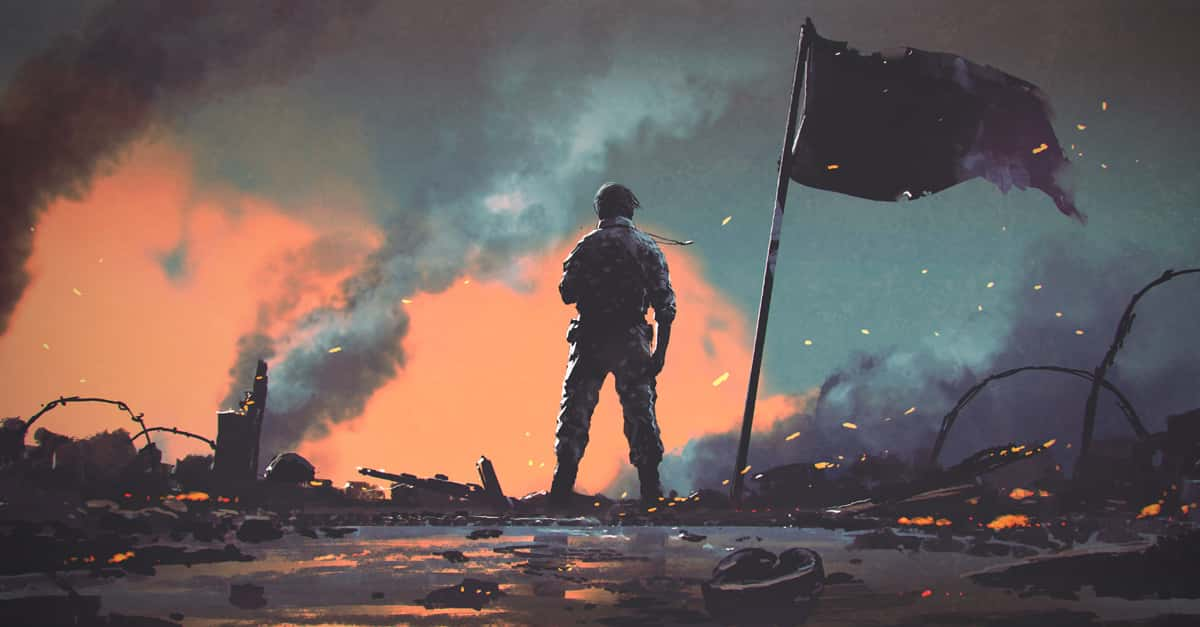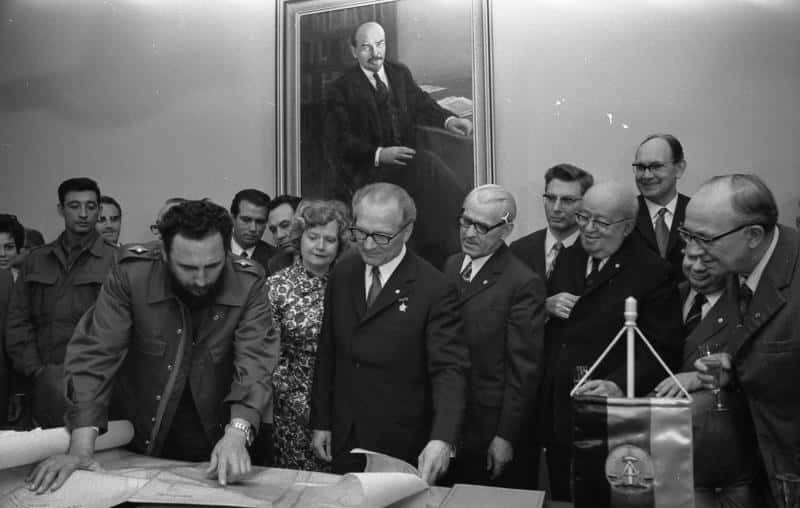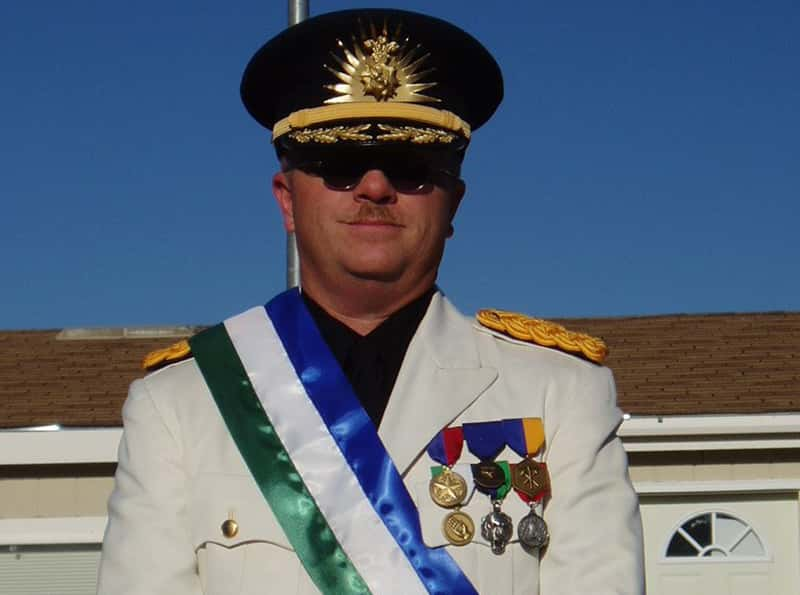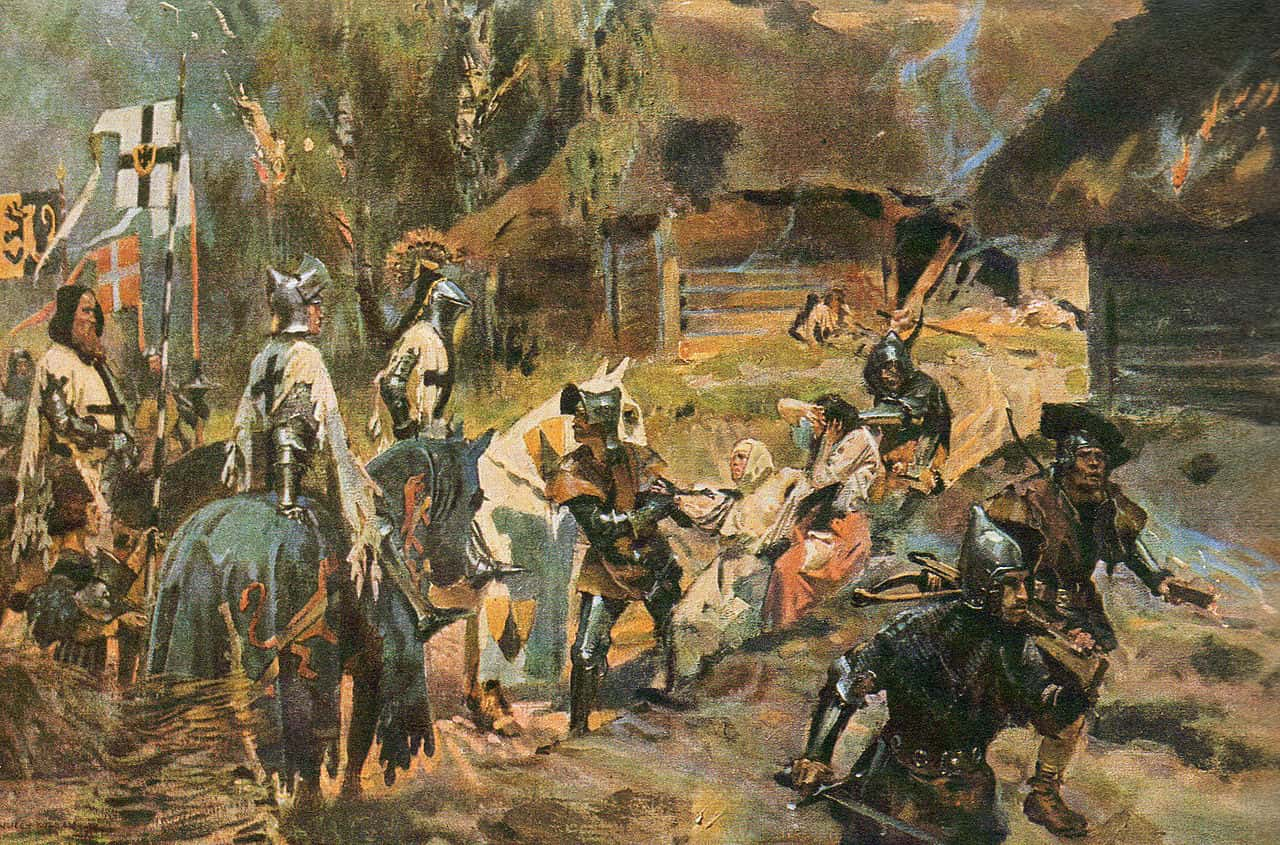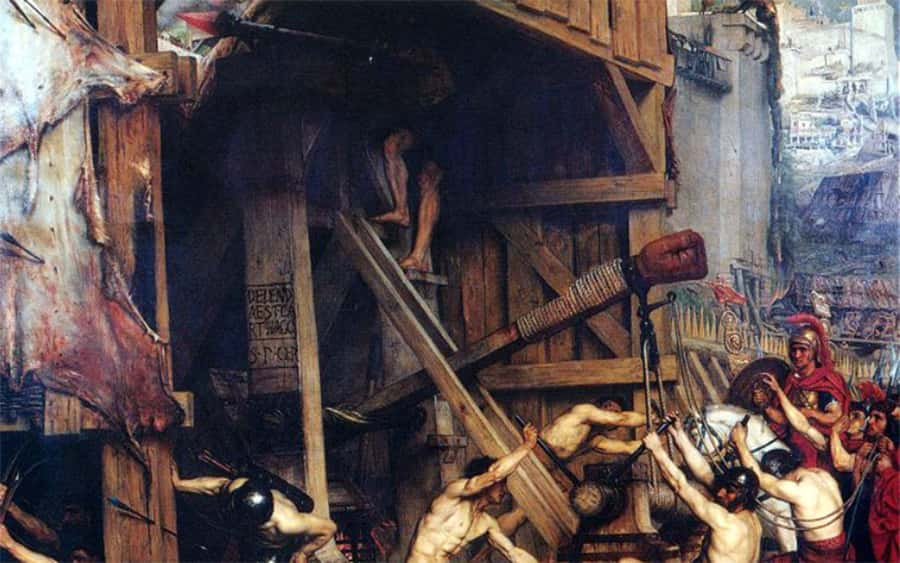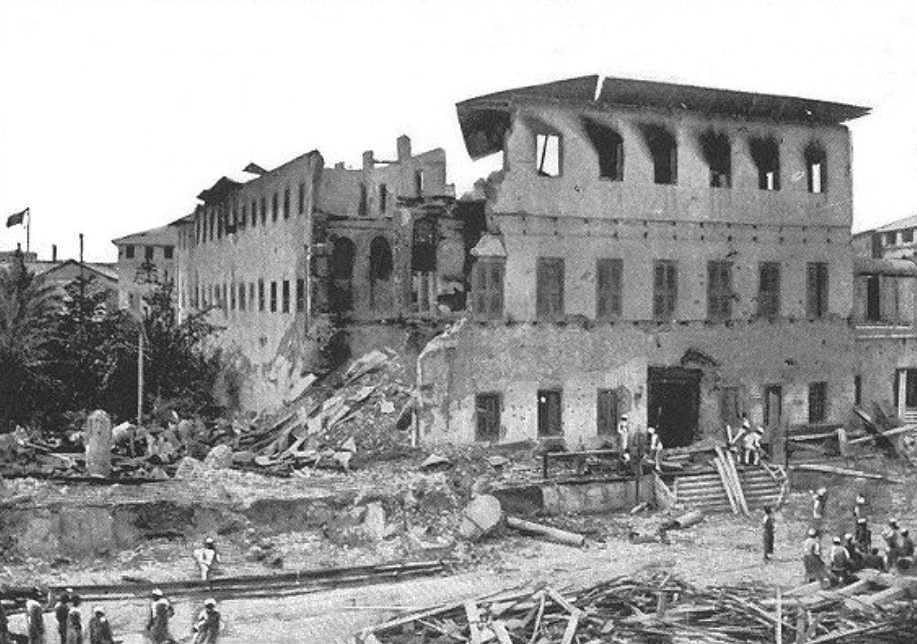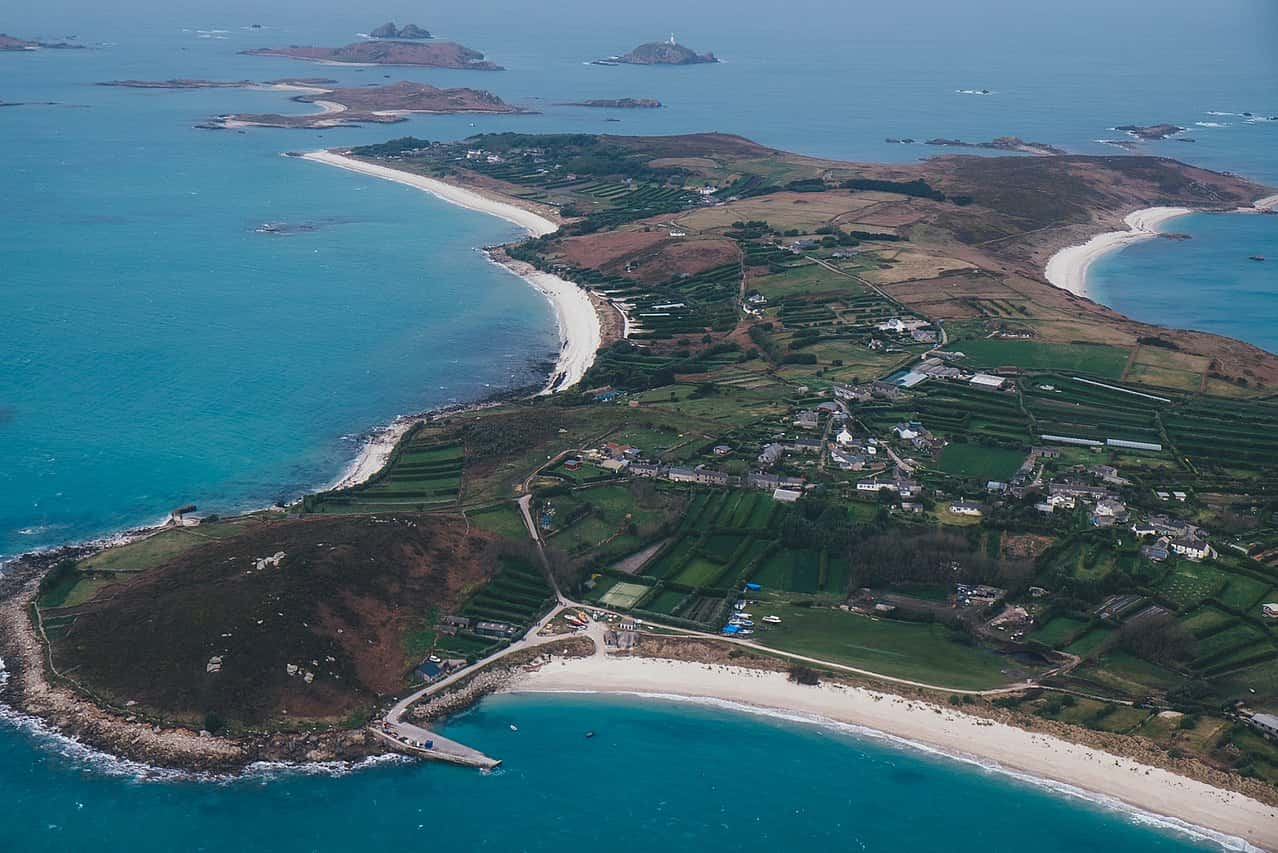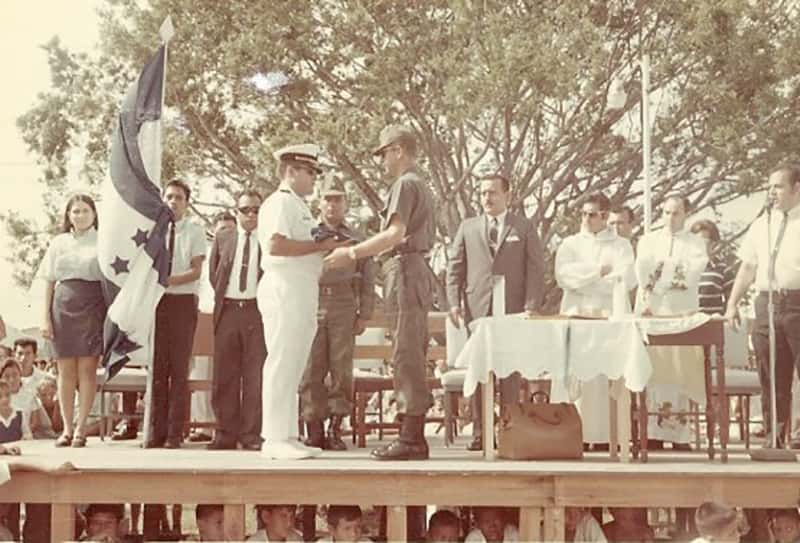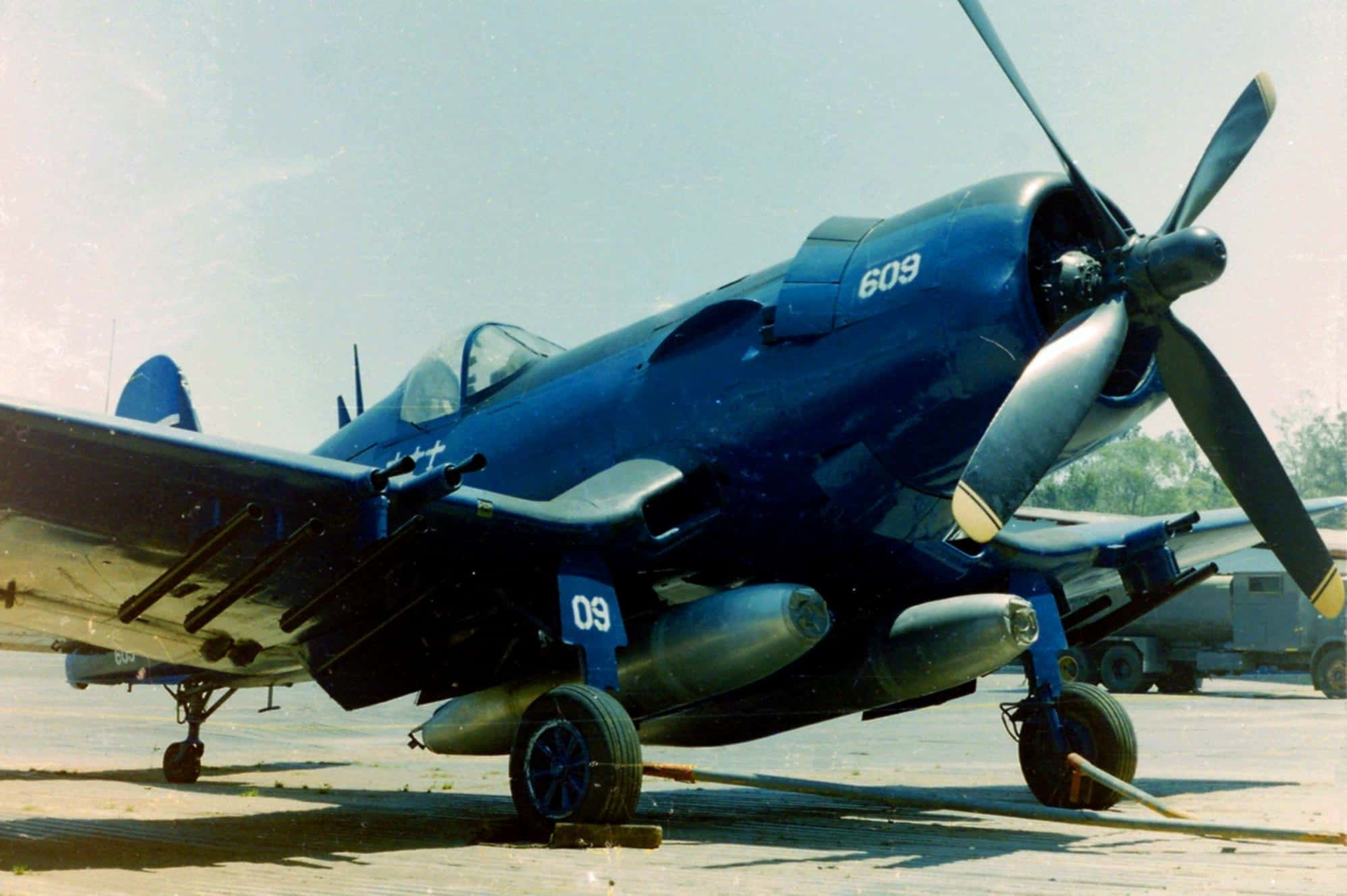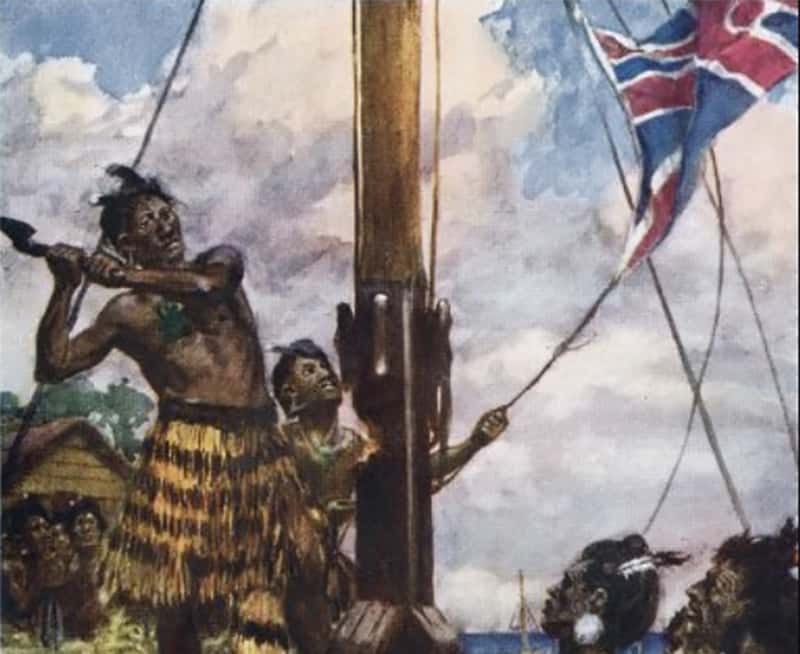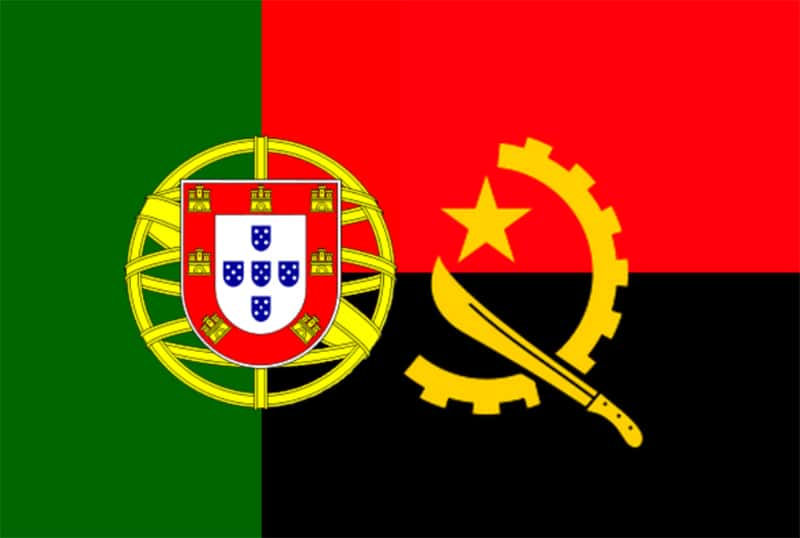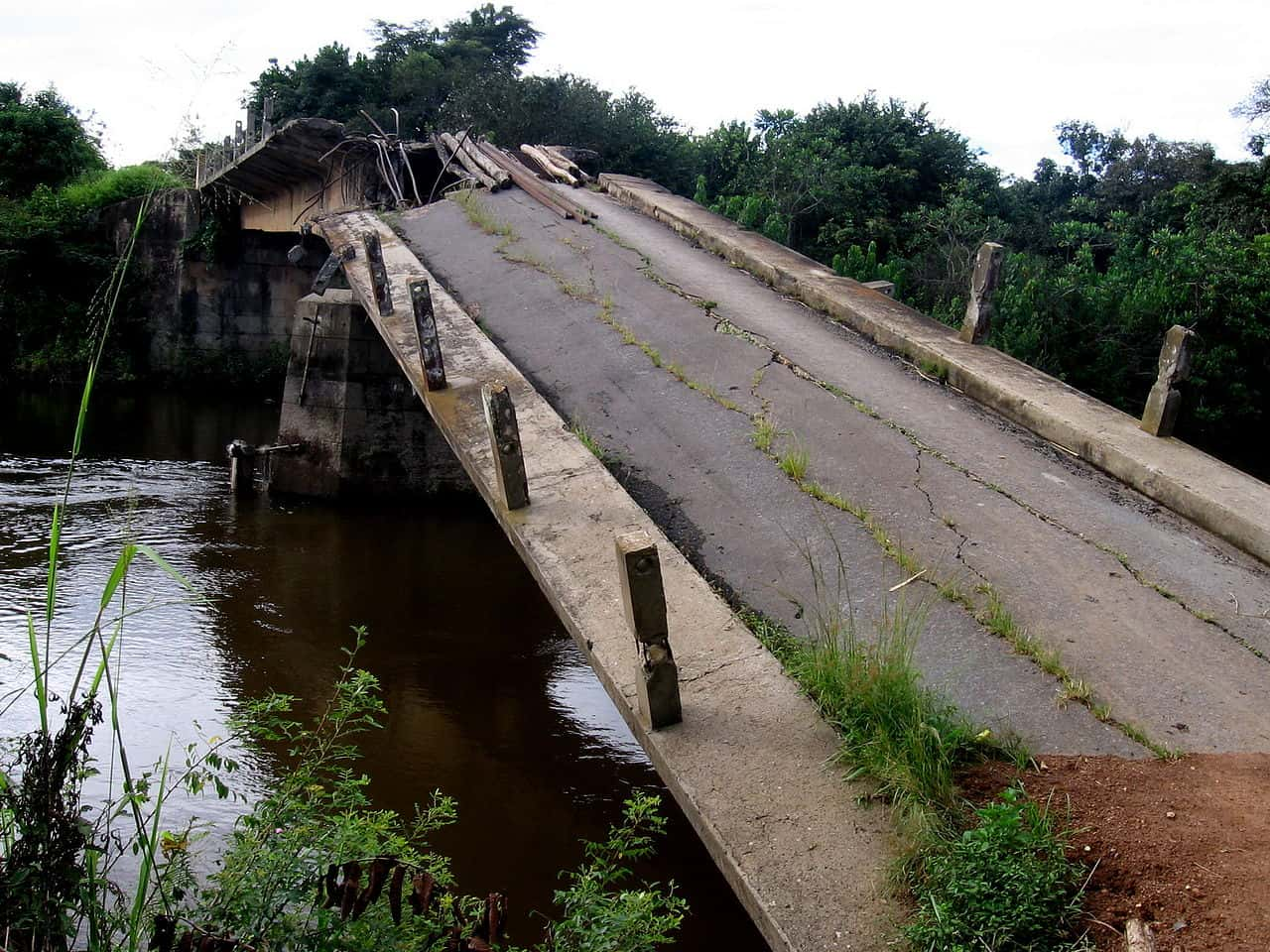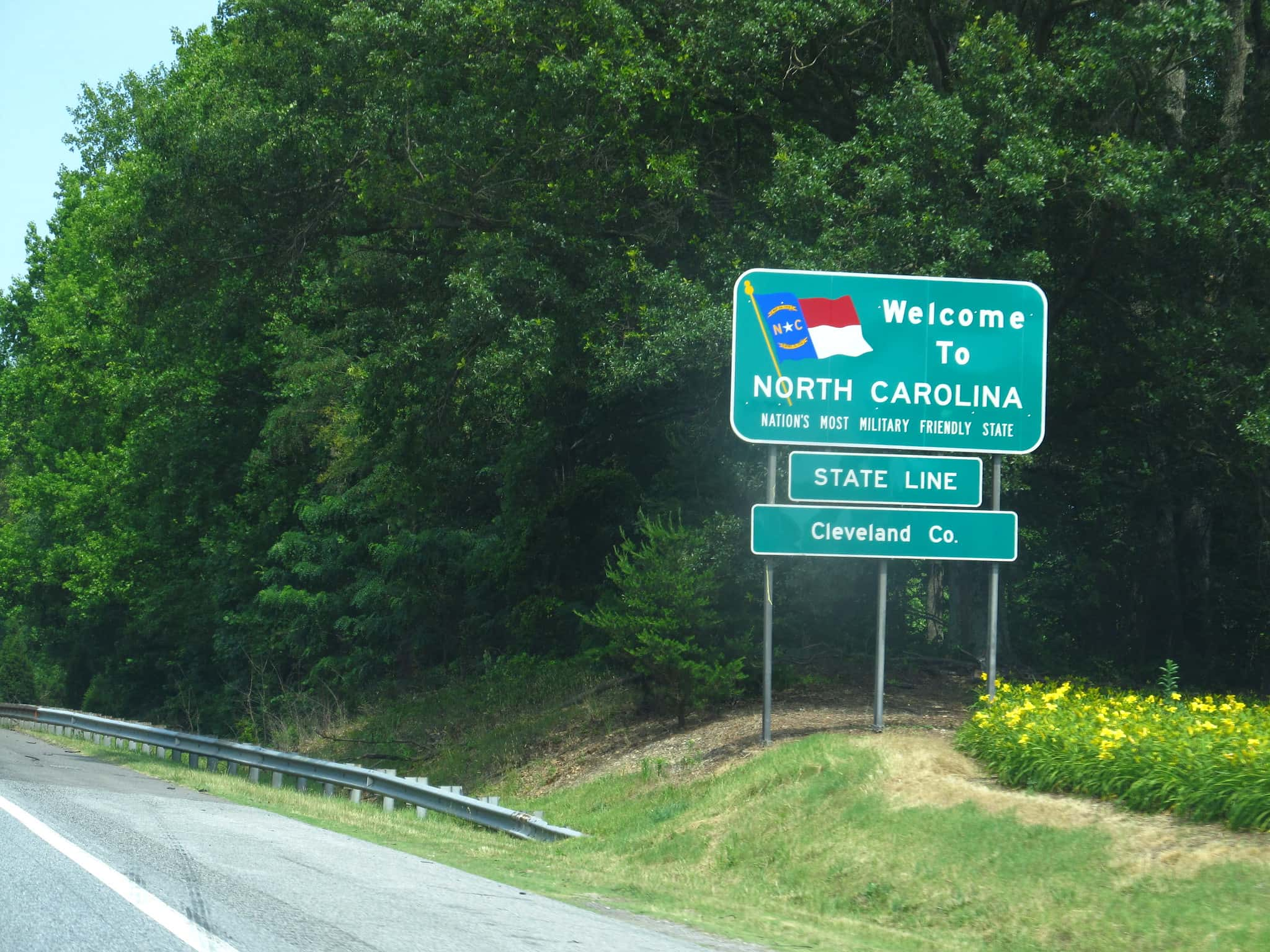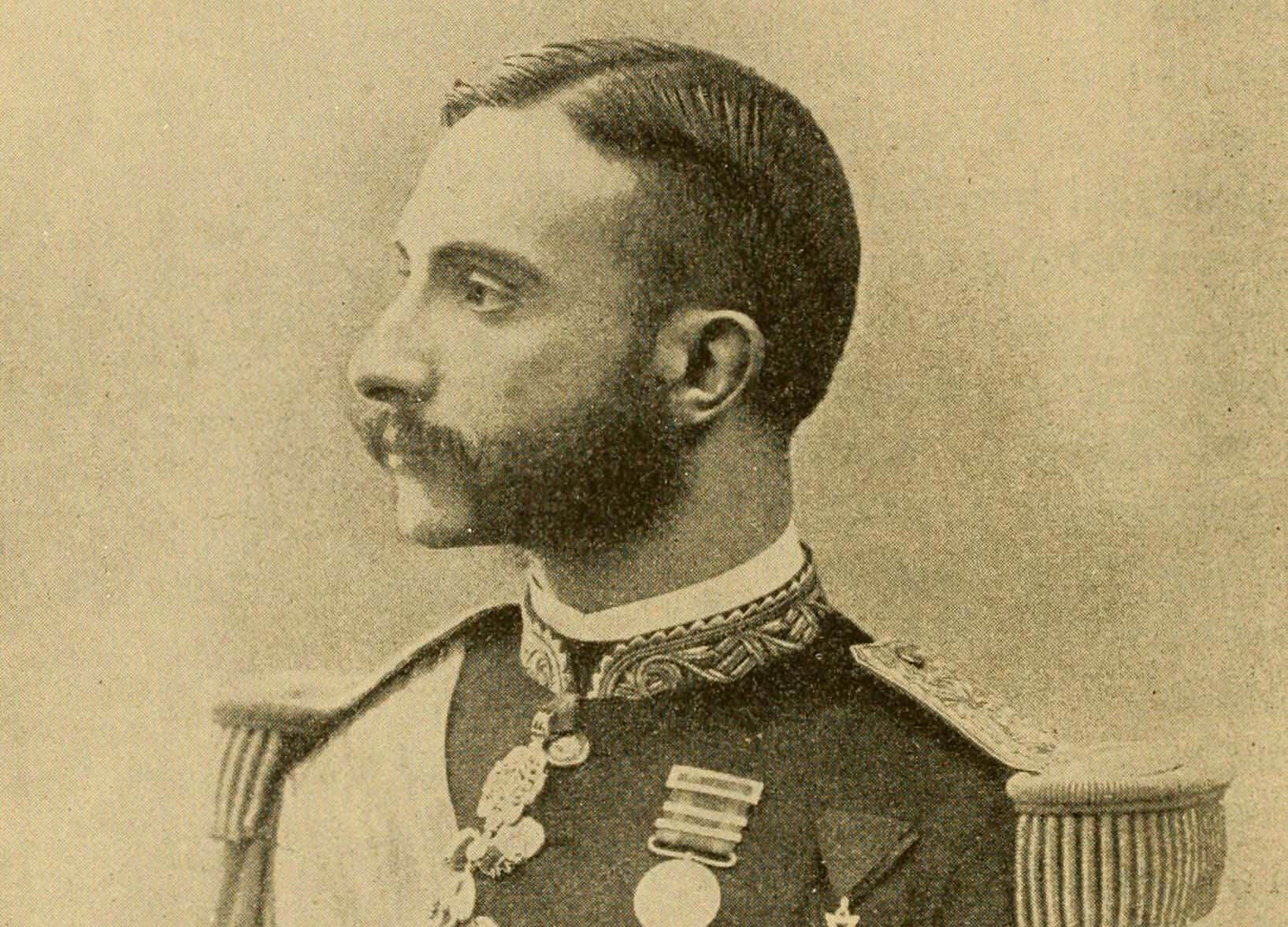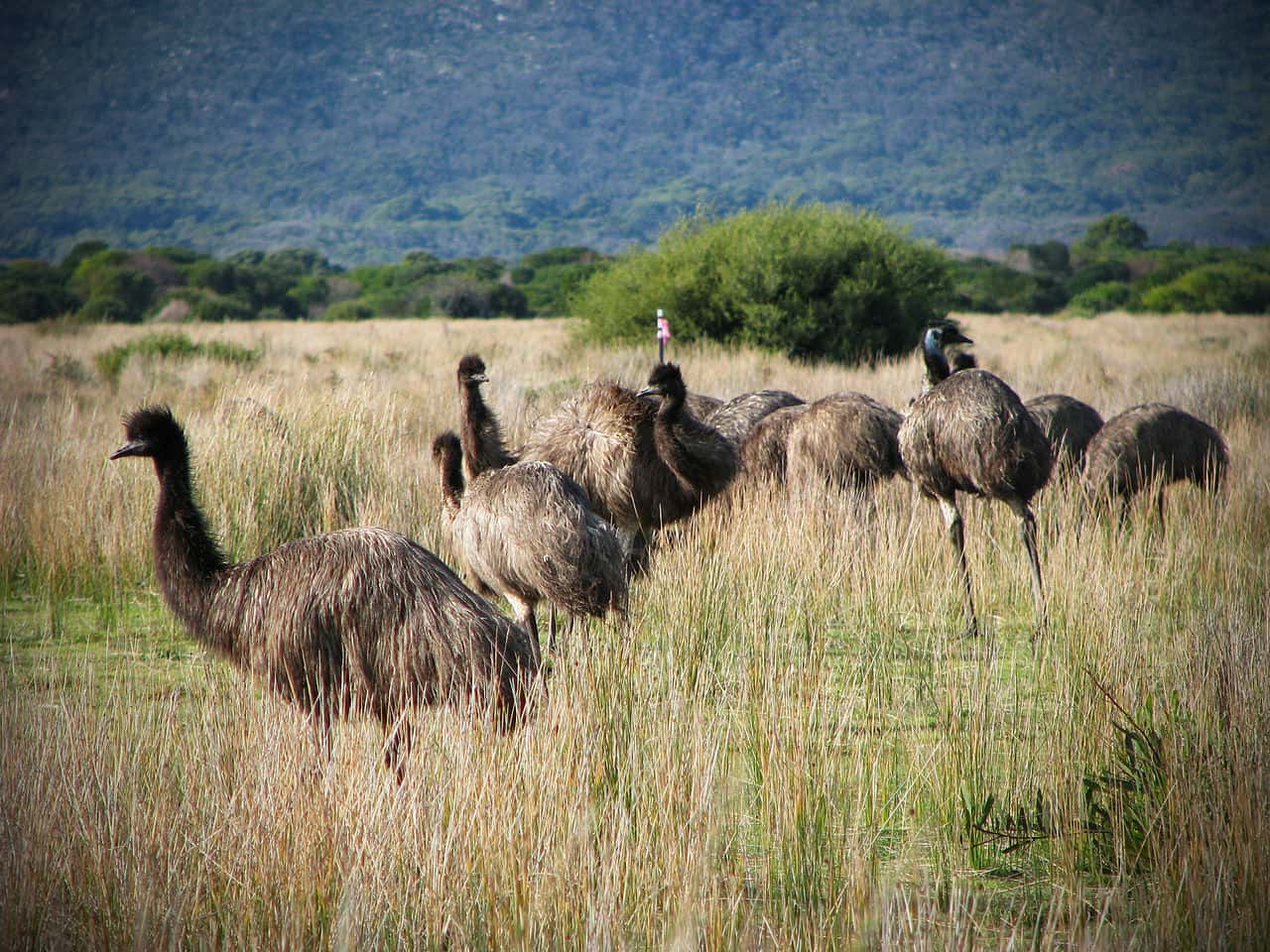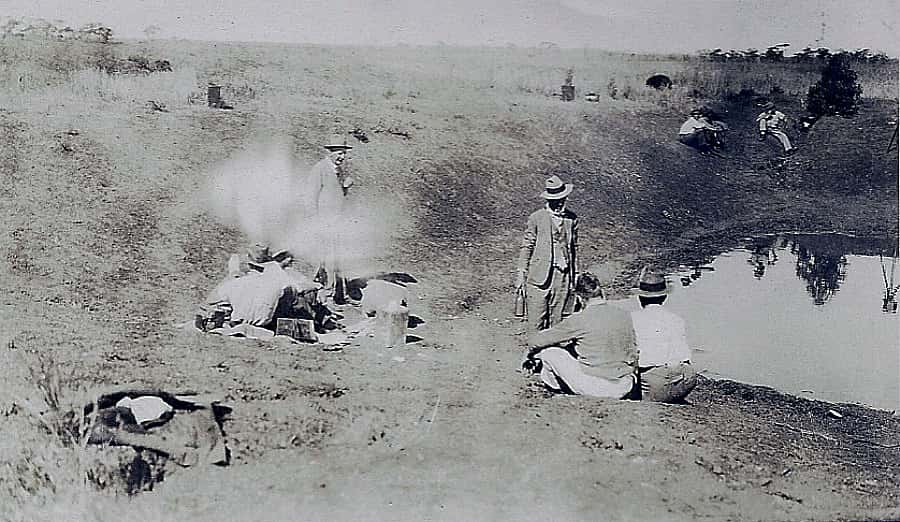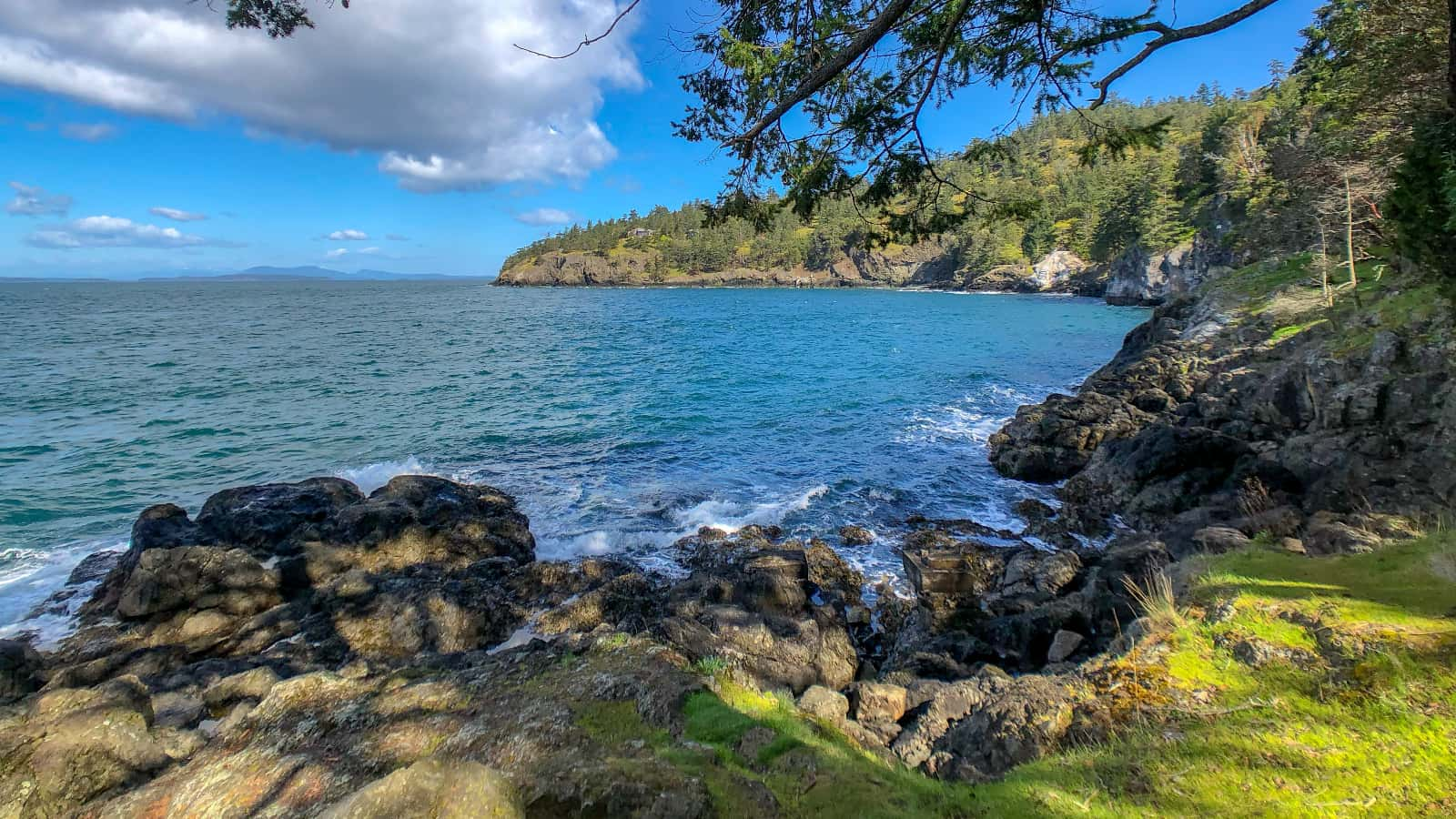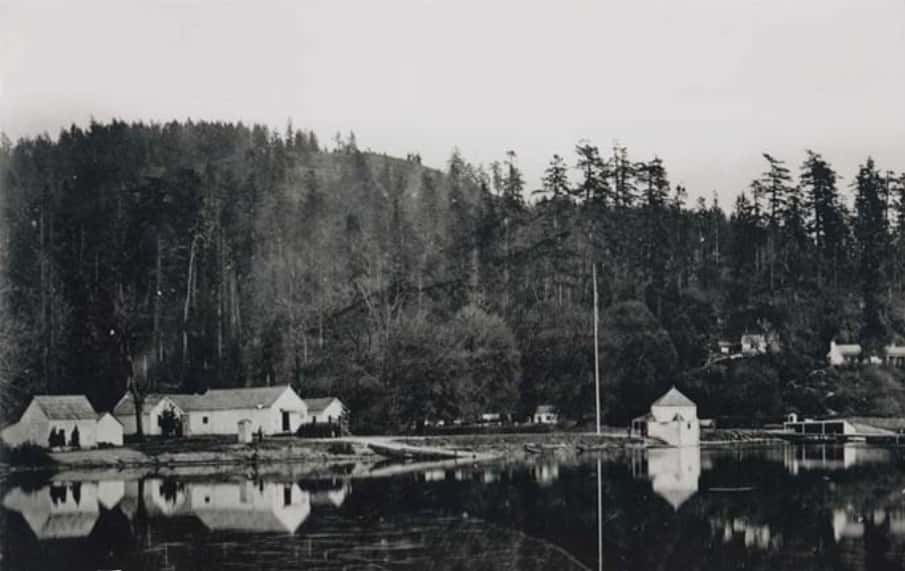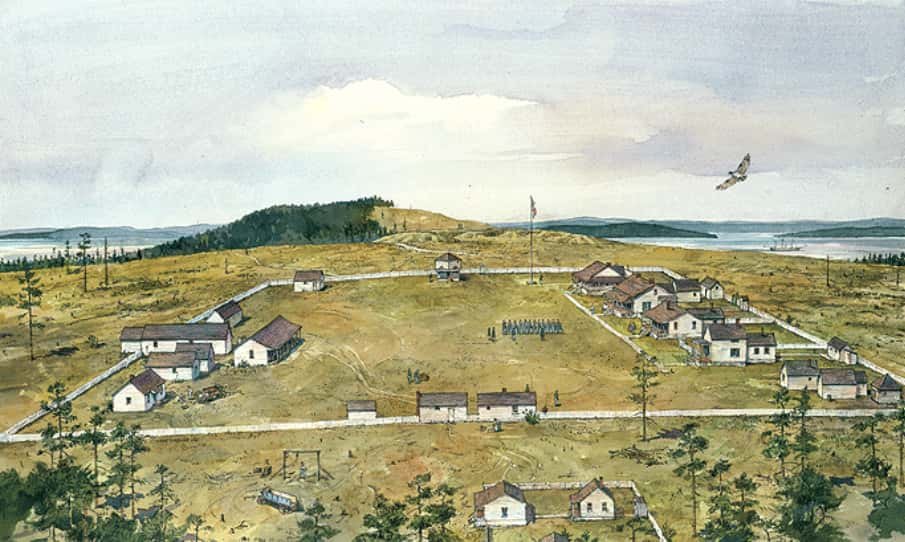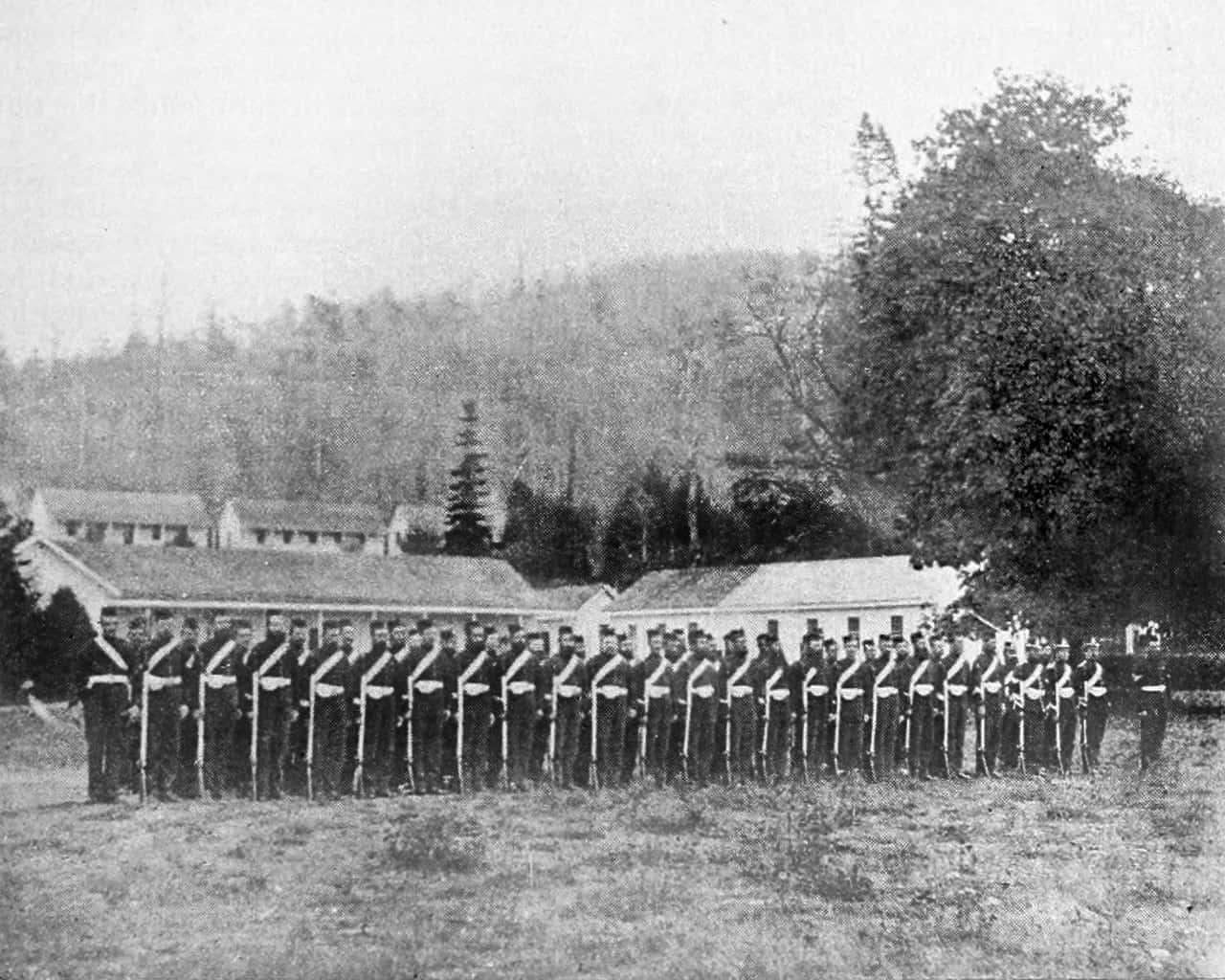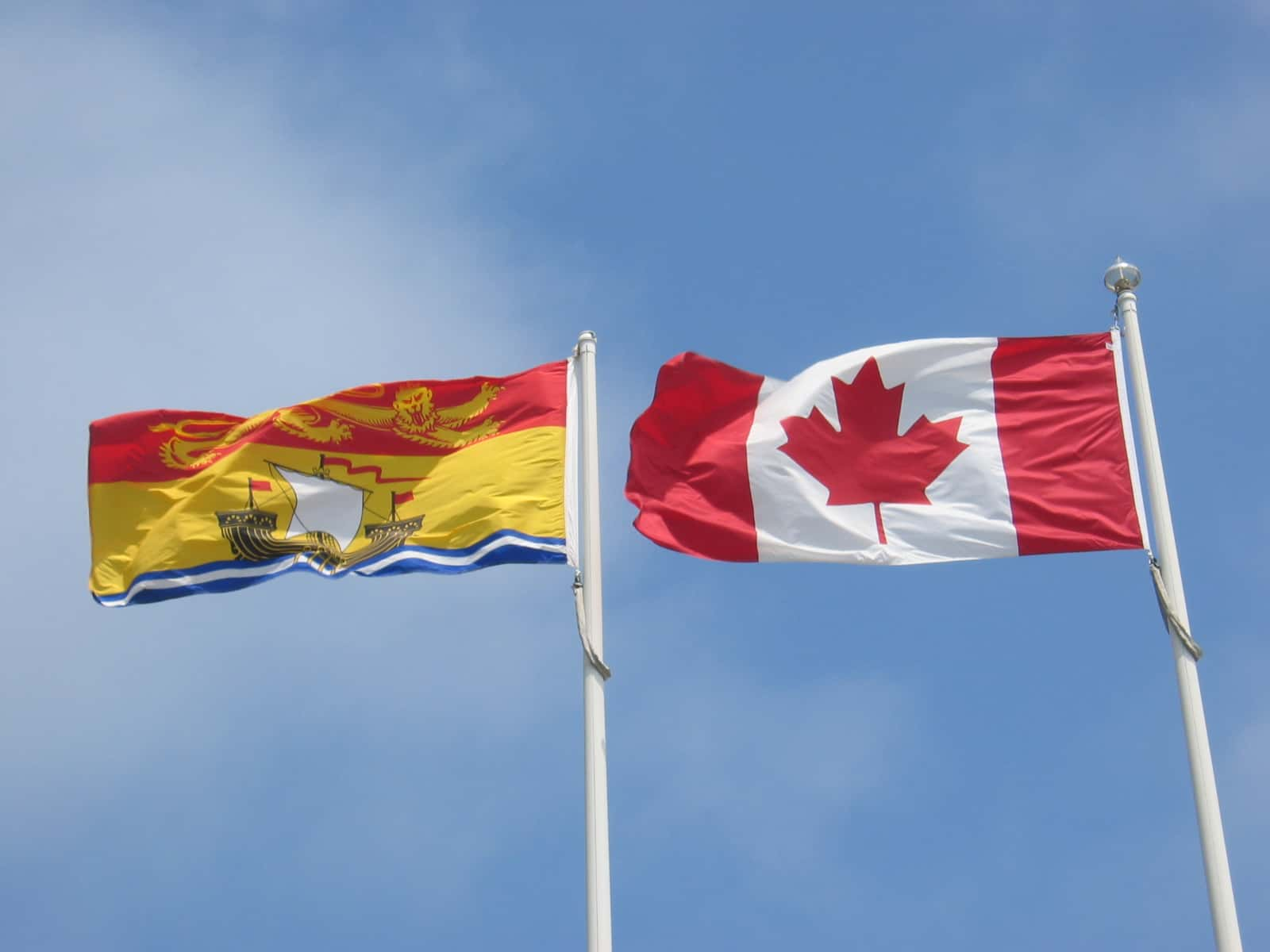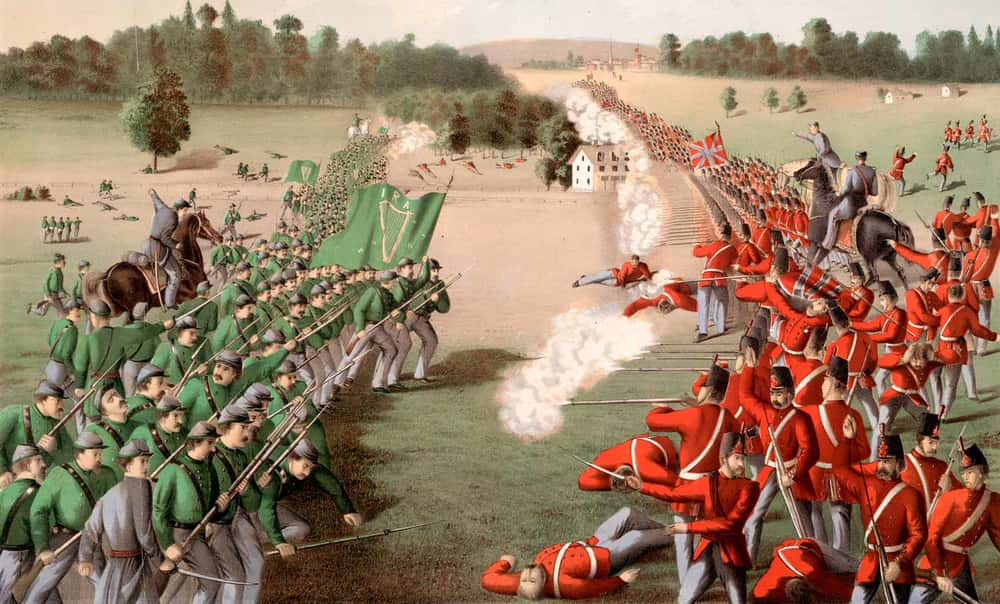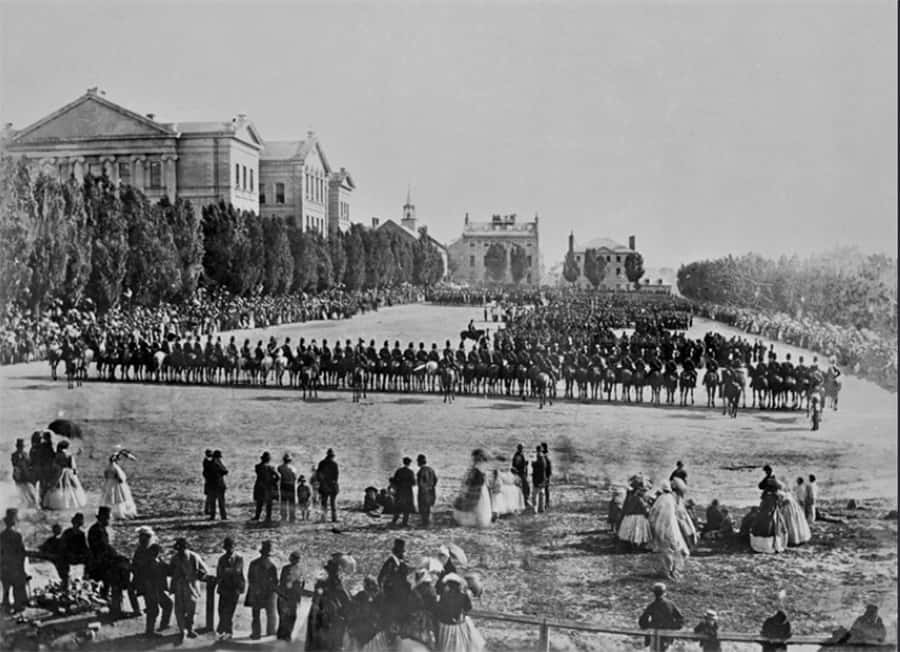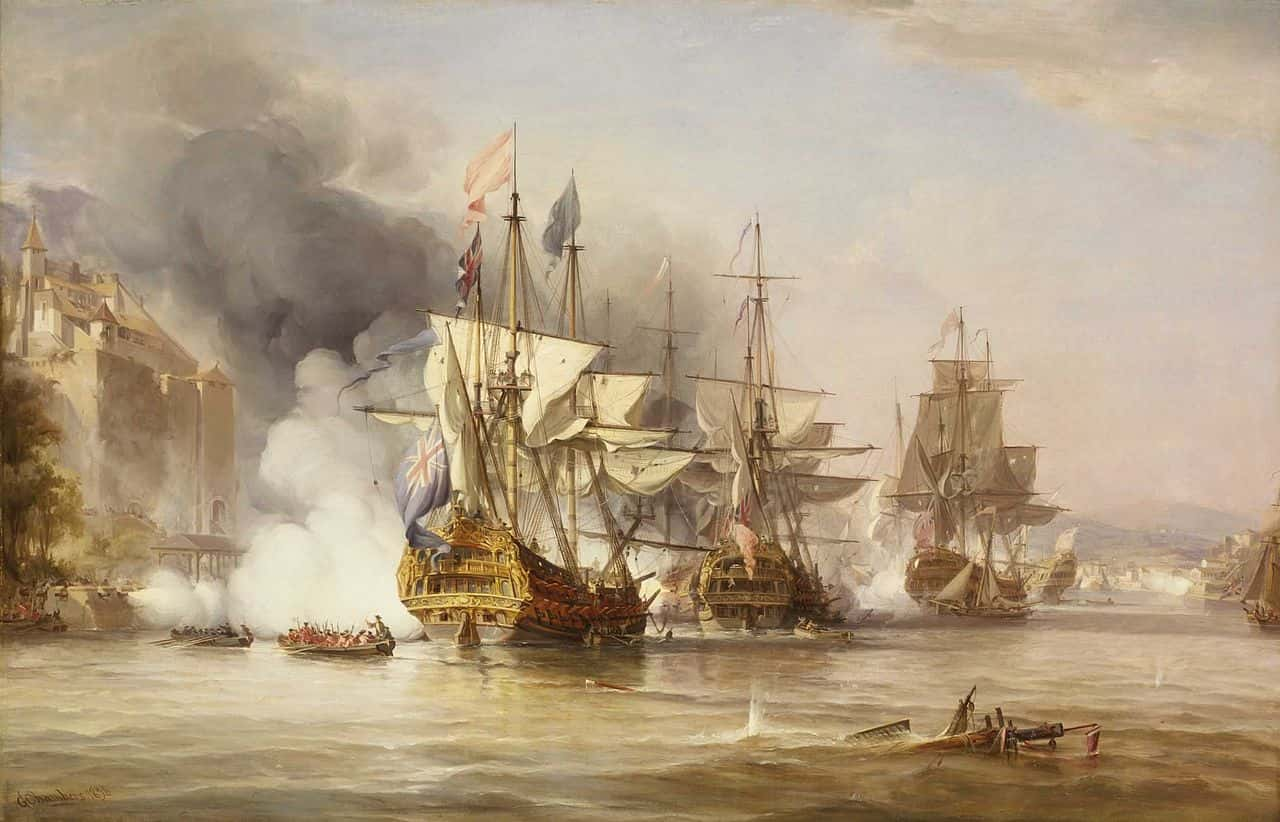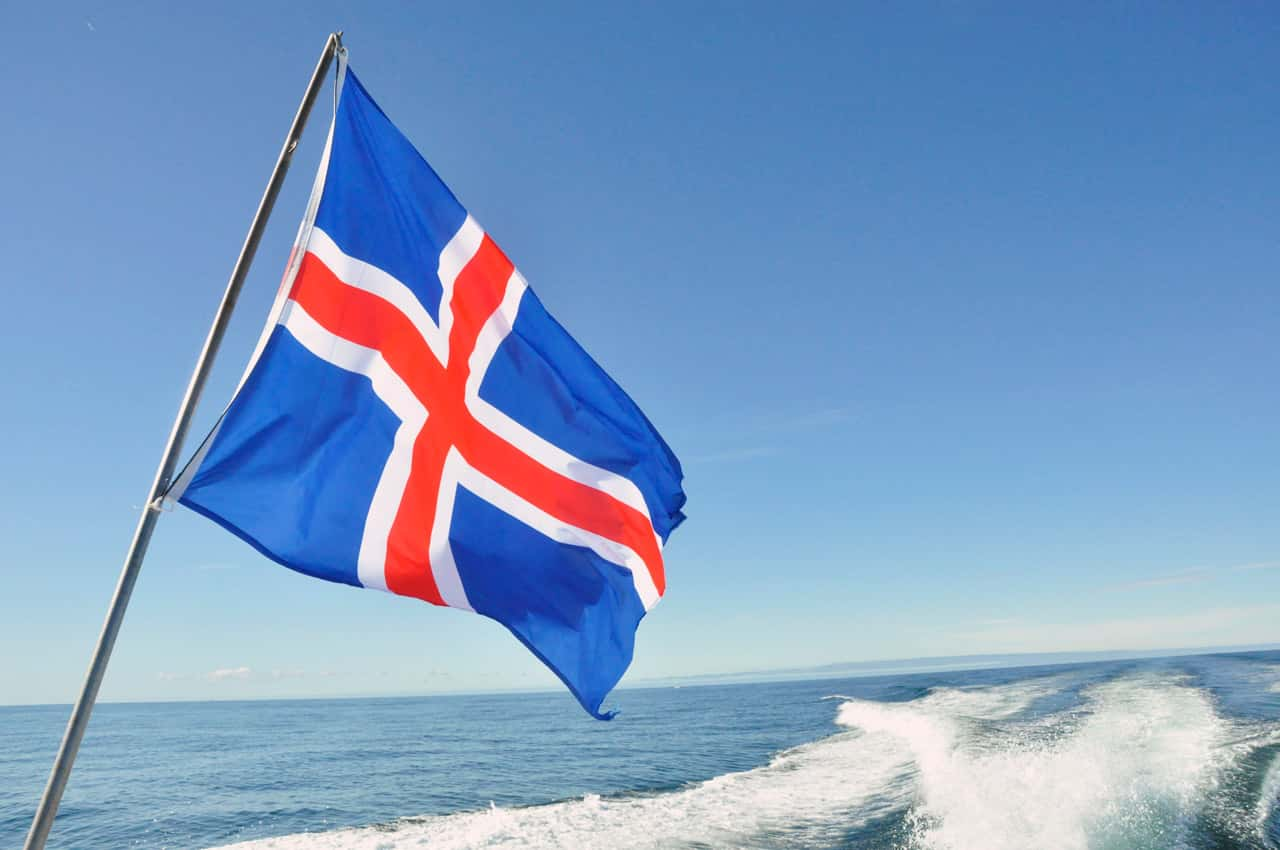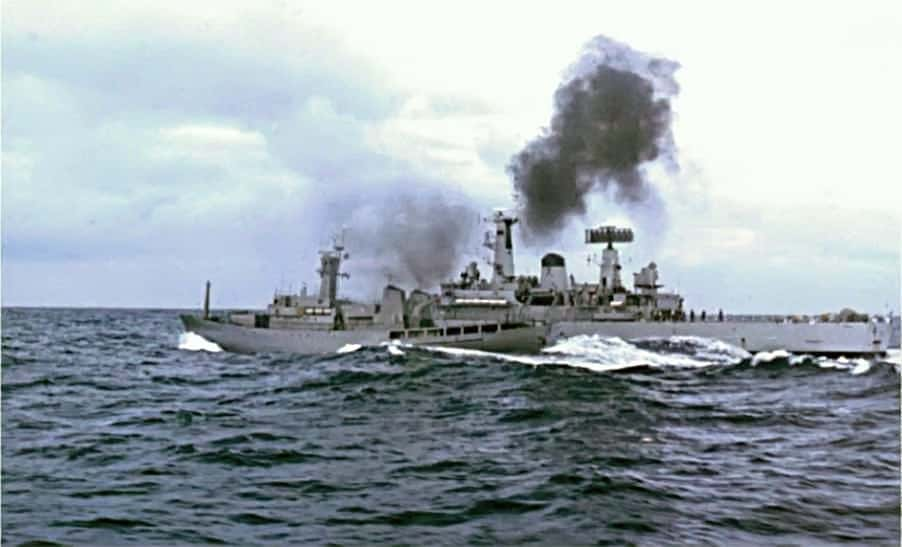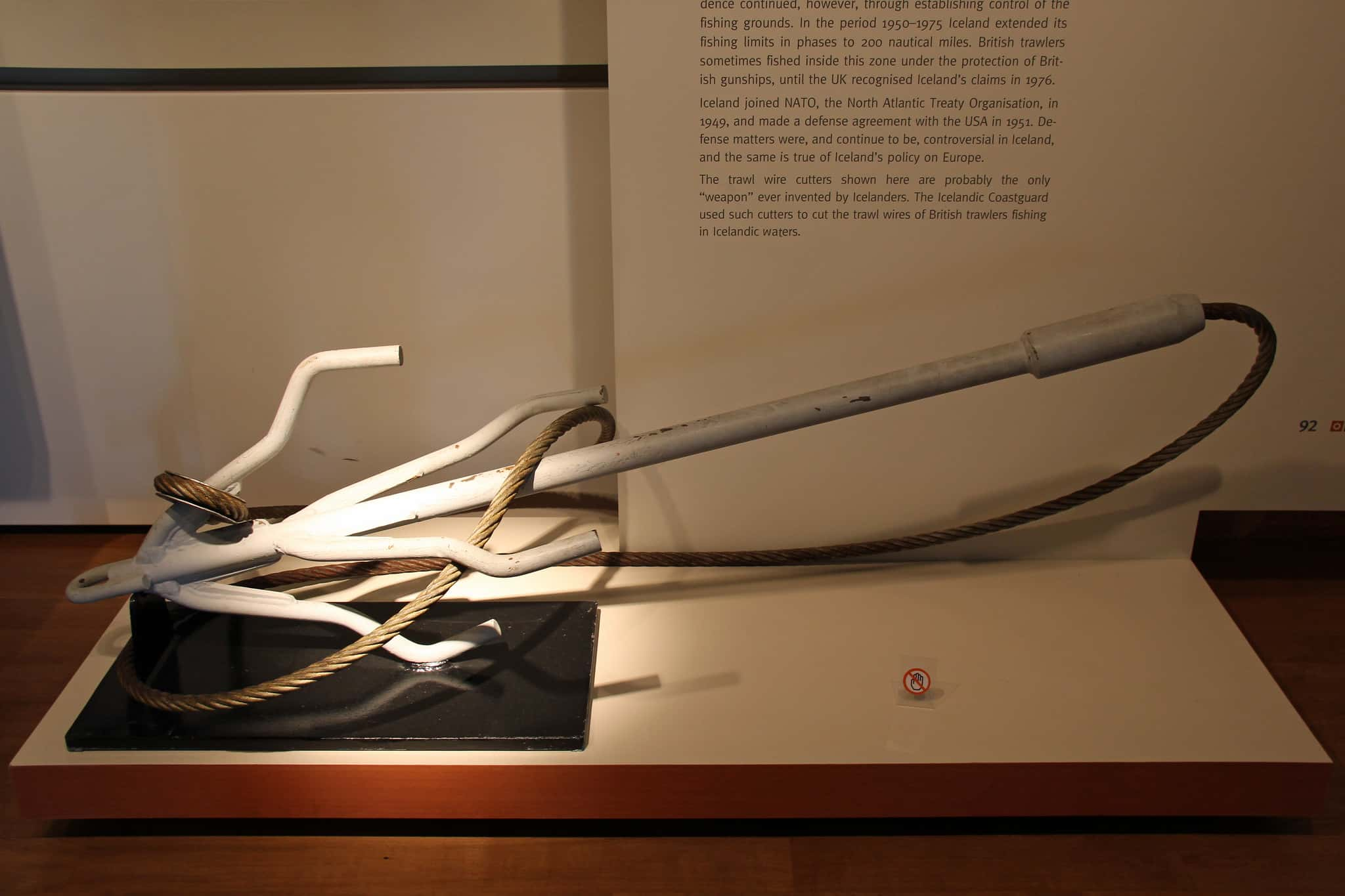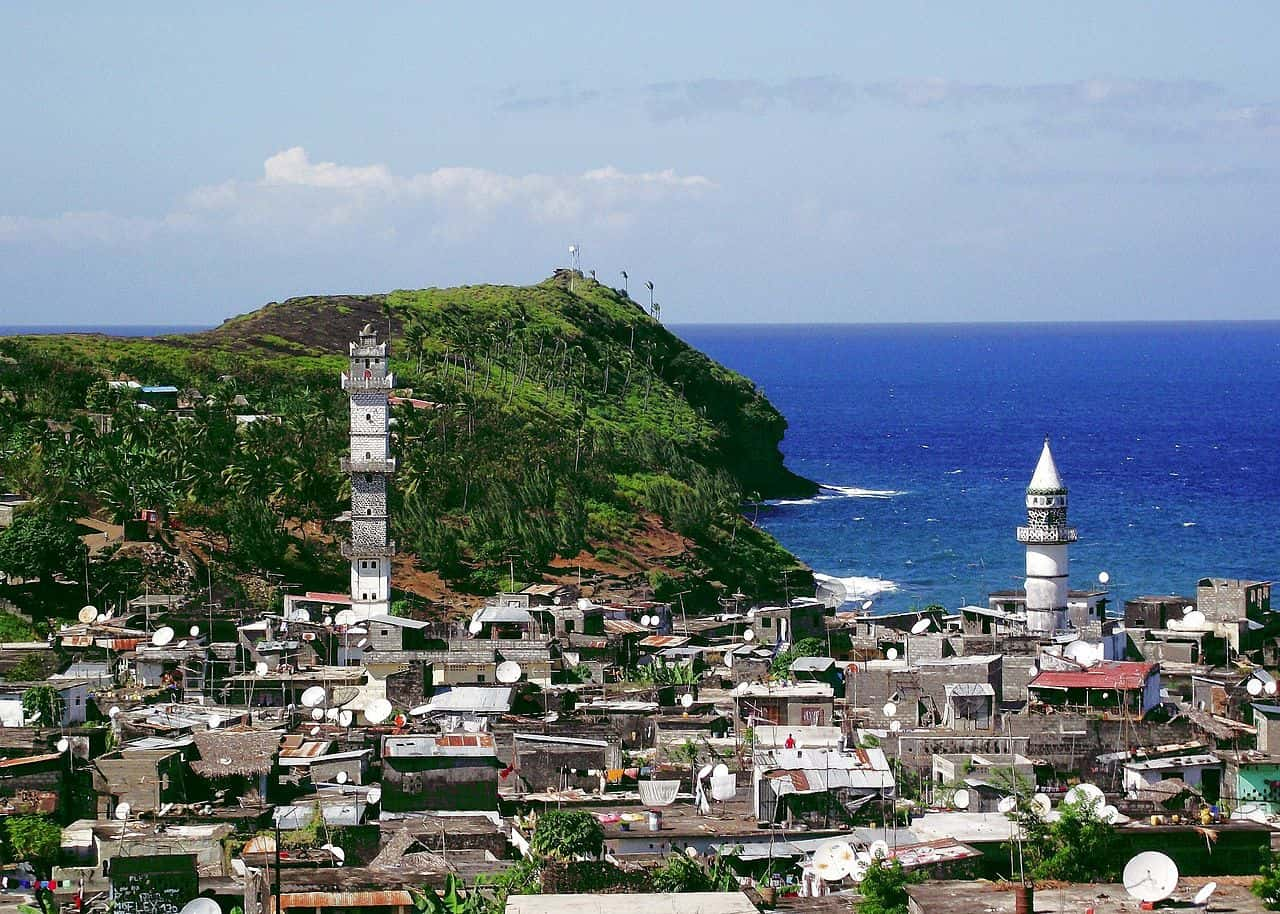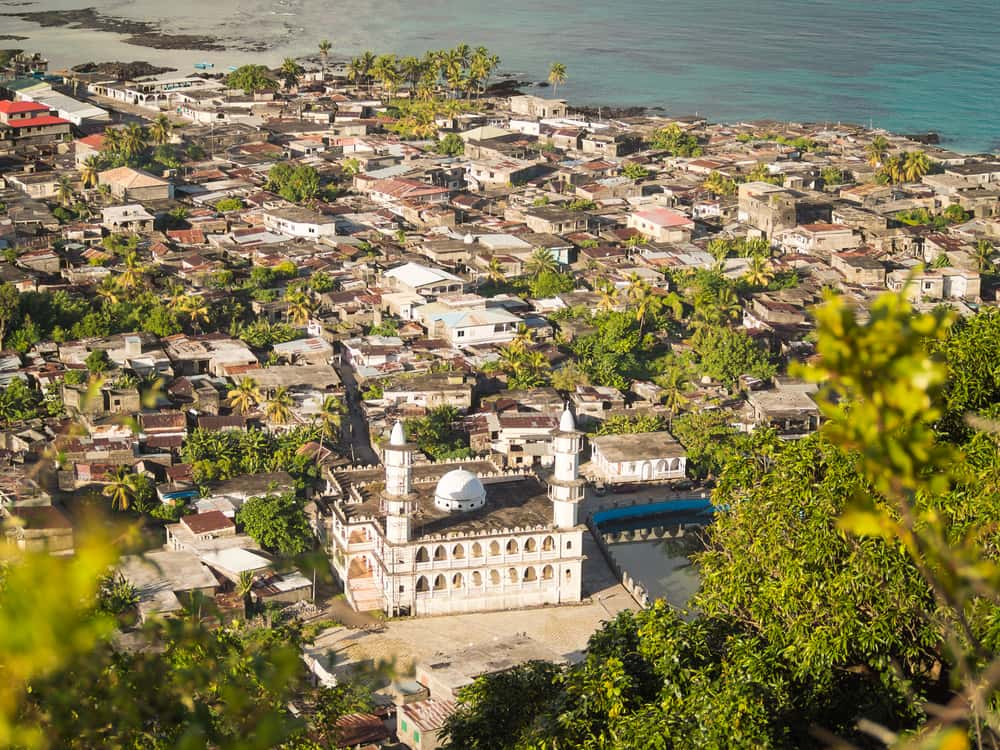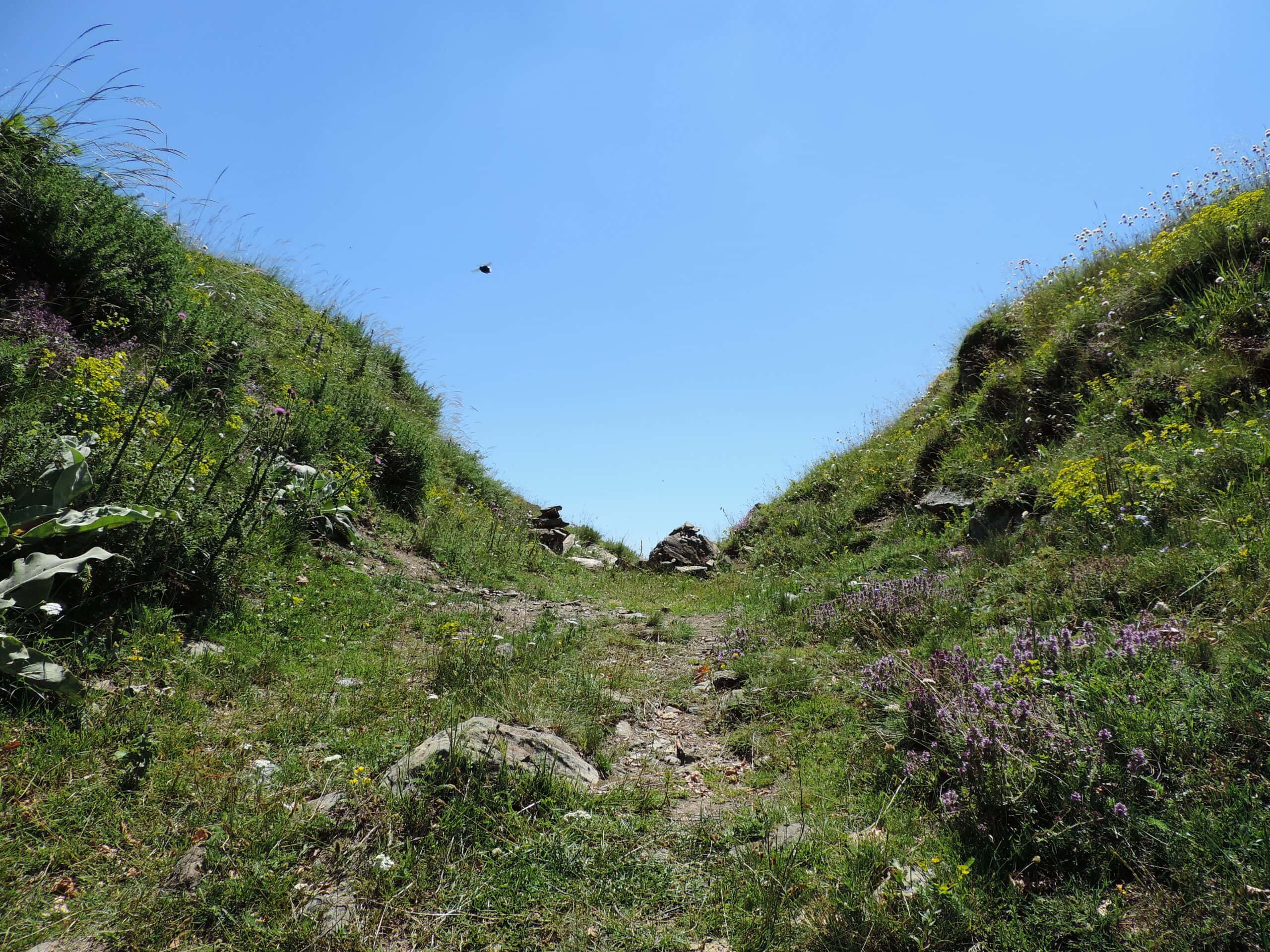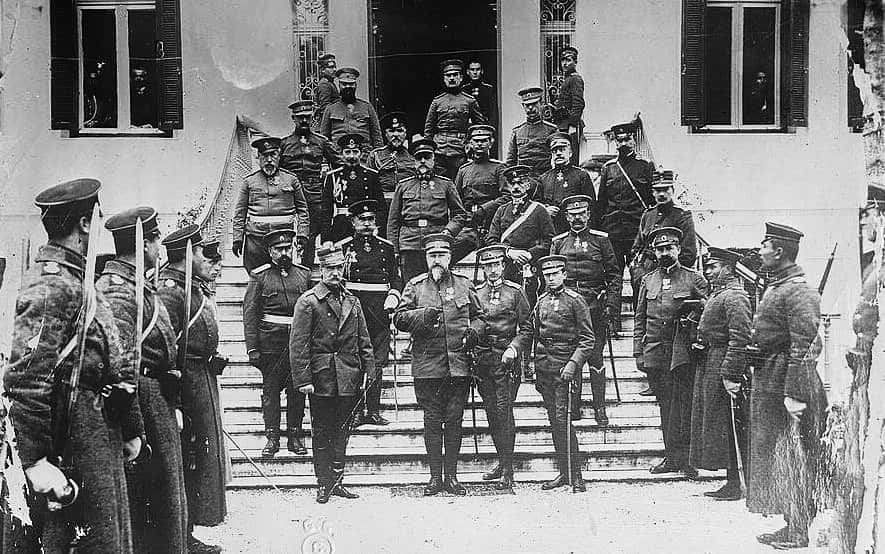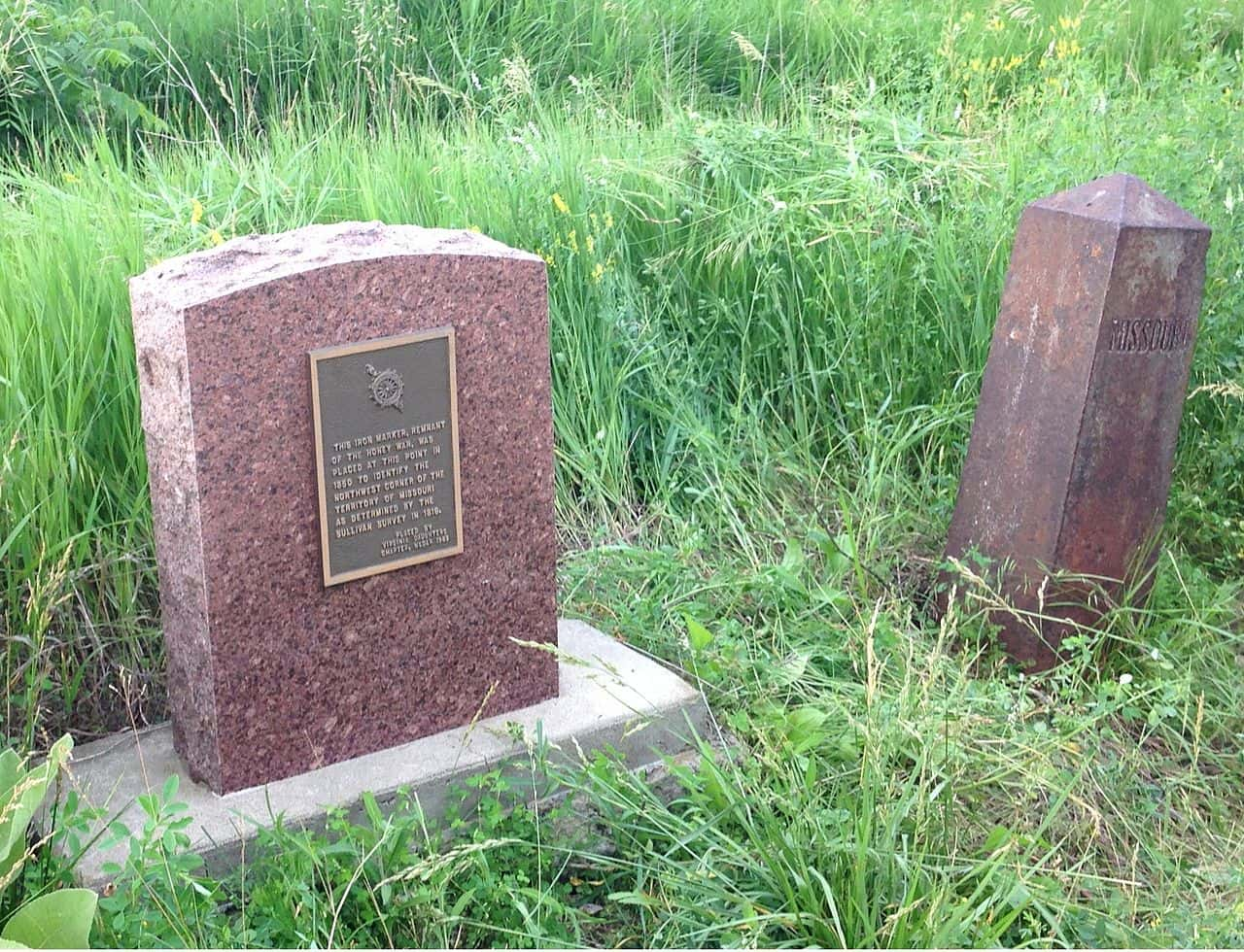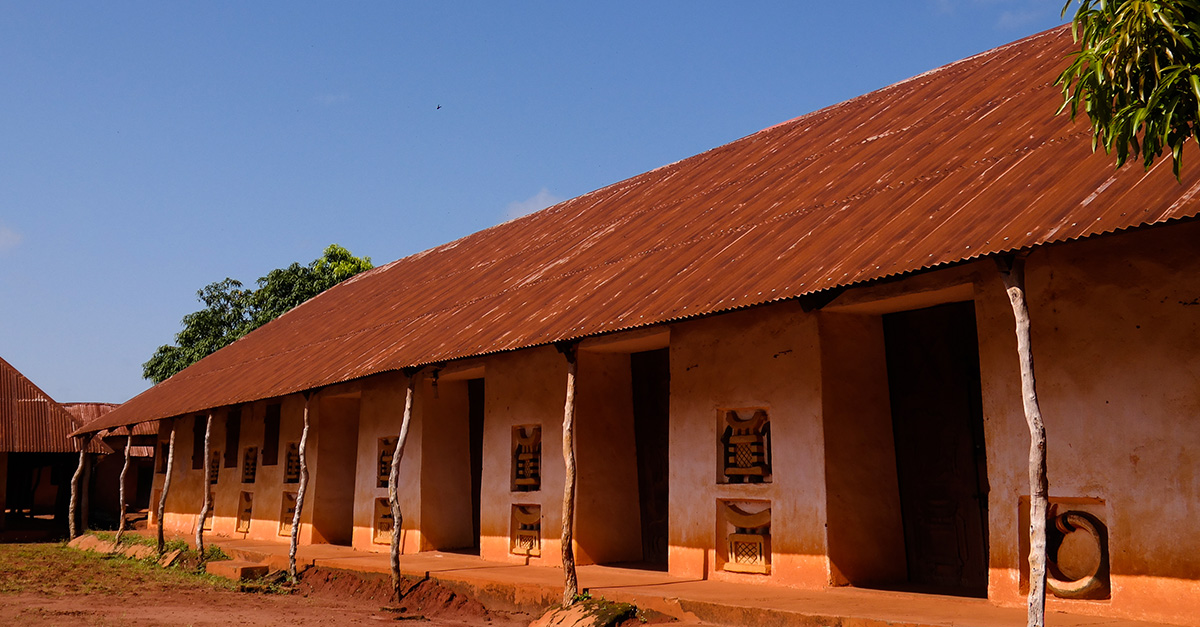Some wars are just a little less memorable than others. They are the petty, pointless, or downright silly conflicts that were too insignificant, or too embarrassing, to make it into the history books. And there’s a lot of them. Discover these remarkable facts about the forgotten wars you didn't learn about in school.
1. A Private Kingdom
The Republic of Molossia: 0.002 square miles, home to 34 sovereign citizens (some of them dogs), and located just outside of Reno, Nevada. Since declaring independence in 1999, this tiny (unrecognized) nation has been in conflict with...East Germany.
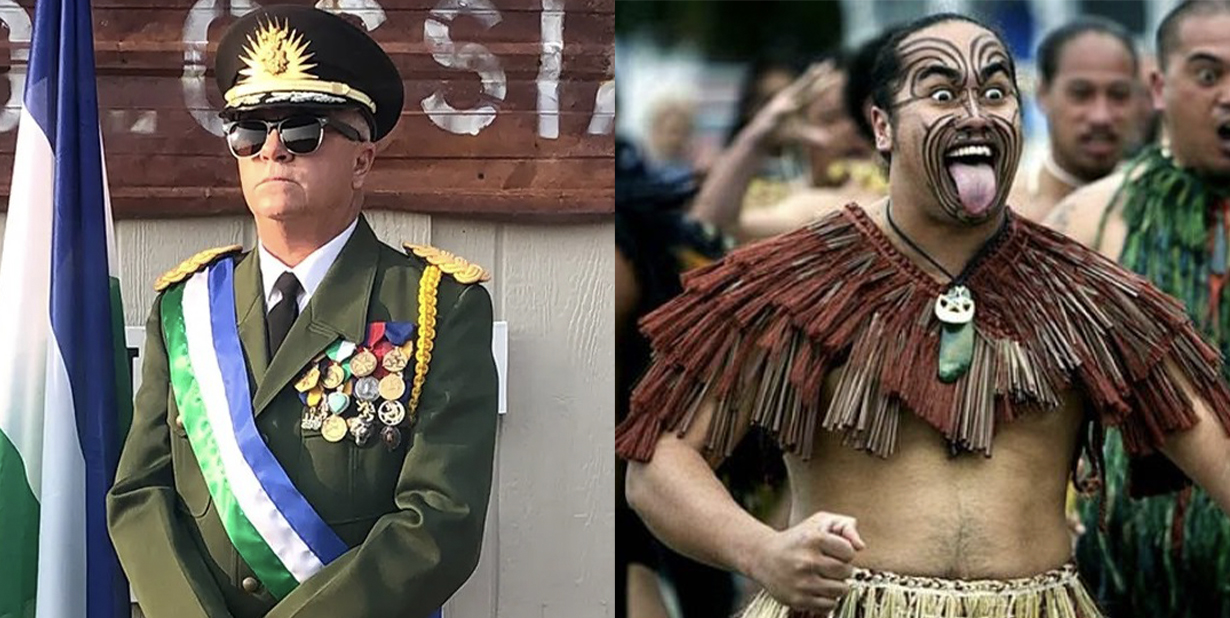
2. The Hold Out
Obviously, this raises many questions, not the least of which is, “There’s still an East Germany?” Technically, sort of. Ernst Thӓlmann Island, off the coast of Cuba, was symbolically gifted to East Germany in 1972. When Germany reunified in 1990, all documents neglected to include Ernst Thӓlmann Island, meaning the island is still technically East Germany.
3. This Time, It’s Personal
The president of Molossia, Kevin Baugh, has a personal reason for fighting East Germany. While in the army (that is, the United States Armed Forces), Baugh was stationed in West Germany. Baugh argues that, were it not for East Germany, he could’ve slept in instead of getting up early every morning for drill. Makes you wonder just how many conflicts could have been avoided if everyone got a good night’s sleep.
4. By Any Other Name
Incidentally, Kevin Baugh continues to pay taxes to the United States. He considers it “foreign aid.”
5. Not So Holy
Saying the word “Crusades” immediately conjures images of Knights Templar riding into Jerusalem, or Saracens storming across desert sands. It might surprise you to know that the Crusades were fought against European nations as well. From 1147 into the 13th century, Christian nations launched a series of crusades to forcibly convert pagan nations in northeastern Germany and around the Baltic Sea.
6. About Time
And you thought the Hundred Years War took forever. The Third Punic War between Rome and Carthage began in 149 BCE. Peace between the two city-states was not formally declared until 1985, a ridiculous 2,134 years later.
7. The Quick And The Departed
In contrast, the Anglo-Zanzibar conflict lasted just 38 minutes. The incoming Sultan of Zanzibar broke protocol by refusing to seek approval of the British government before claiming his throne. The British responded by barricading him in his palace and wreaking havoc. In the time it takes to eat dinner, British men slaughtered 500 Zanzibaris, sunk three Zanzibari warships, and forced the Sultan to flee to German East Africa.
8. Something Must’ve Come Up
In 1651, the Netherlands raised arms against the British royalists camped on the Isles of Scilly. They then promptly forgot all about it. Scholars rediscovered the Three Hundred and Thirty Five Years’ War in 1986 and the two nations officially called it off, without a single shot being fired.
9. Football Hooligans
Honduras and El Salvador, despite being neighbors, did not get along well in the 60s. Things came to a head when the two Central American nations met for two games in the 1969 World Cup. The heated soccer matches led to fighting in the stands, which led to riots, which led to both countries severing all diplomatic ties, which led to all-out combat, including attacks from both countries’ air forces before they called a cease-fire four days later. More than 3,000 people lost their lives in “the Football War,” the vast majority of them civilians.
10. Discount Airlines
At the time of the Football conflict, neither country had a particularly strong air force. Both were using WWII-era fighter planes, while El Salvador took the additional step of strapping explosives onto passenger jets to drop on Honduras.
11. A Whole Bucket Of Trouble
The city of Bologna raised arms against the rival city of Modena in 1325 after some Modenese snuck into town and took the bucket from the town well. 4,000 men lost their lives in the conflict.
12. Bragging Rights?
Having won the sole battle in the conflict of the Bucket, the citizens of Modena kept that bucket and it remains in Modena to this day. Once again, 4,000 men lost their lives fighting in this conflict.
13. Capture The Flag
The Maori, led by Hona Heke, did not appreciate the invading British raising the Union Jack after landing in New Zealand. So they chopped it down. Then the British put up another flag. The Maori cut that down. Again, the British put up their flag, this time with an iron-sheathed flagpole. One more time, the Maori cut that flagpole down. Next, instead of raising a flag, the British razed a Maori village to the ground, starting the Flagstaff conflict that lasted nearly a year.
14. Independence Day
For fourteen years, Portugal tried unsuccessfully to quell rebellions in the African colony of Angola. Realizing that retaining possession of Angola would be more trouble than they could afford, Portugal declared that Angola would finally have their independence on November 11, 1975—but the conflict was just getting started.
15. Rough Start
Their ultimate goal achieved, and their common enemy defeated, the leaders of the Angolan independence movement split into three factions, each hoping to seize control of the newly-independent nation. By July of 1975, the conflict had turned violent. The Angolan civil conflict officially began on November 11, 1975, at the precise moment Angola gained their independence.
16. Pass The Parcel
Most wars tend to happen because one country wants another country’s land. The Walton War, between Georgia and South Carolina, was fought over a piece of land nobody wanted. In 1787, South Carolina turned over a twelve-mile parcel of land to be used as a Cherokee reservation. The Cherokee said, “No thanks,” but South Carolina refused to take it back. The federal government finally unloaded the land on Georgia as a penalty for their governor’s involvement in a real estate scandal.
17. Get Off My Turf
To everyone’s shock, by 1810, Georgia actually turned “the orphan strip” into a pretty decent piece of property. At this point, South Carolina helpfully suggested that maybe that land should still be theirs. To which North Carolina replied, “Well, actually…” and sent their militia to the Georgia border to seize the land for themselves by any means necessary.
18. Grudge Match
After several actual battles where people lost their lives, a surveyor confirmed that—well I’ll be darned—the land had actually belonged to North Carolina the whole time! And everyone was happy...that is until Georgia tried to reinvestigate the matter. In response, North Carolina prepared the state militia to march to Georgia and defend their border. That was in 1971.
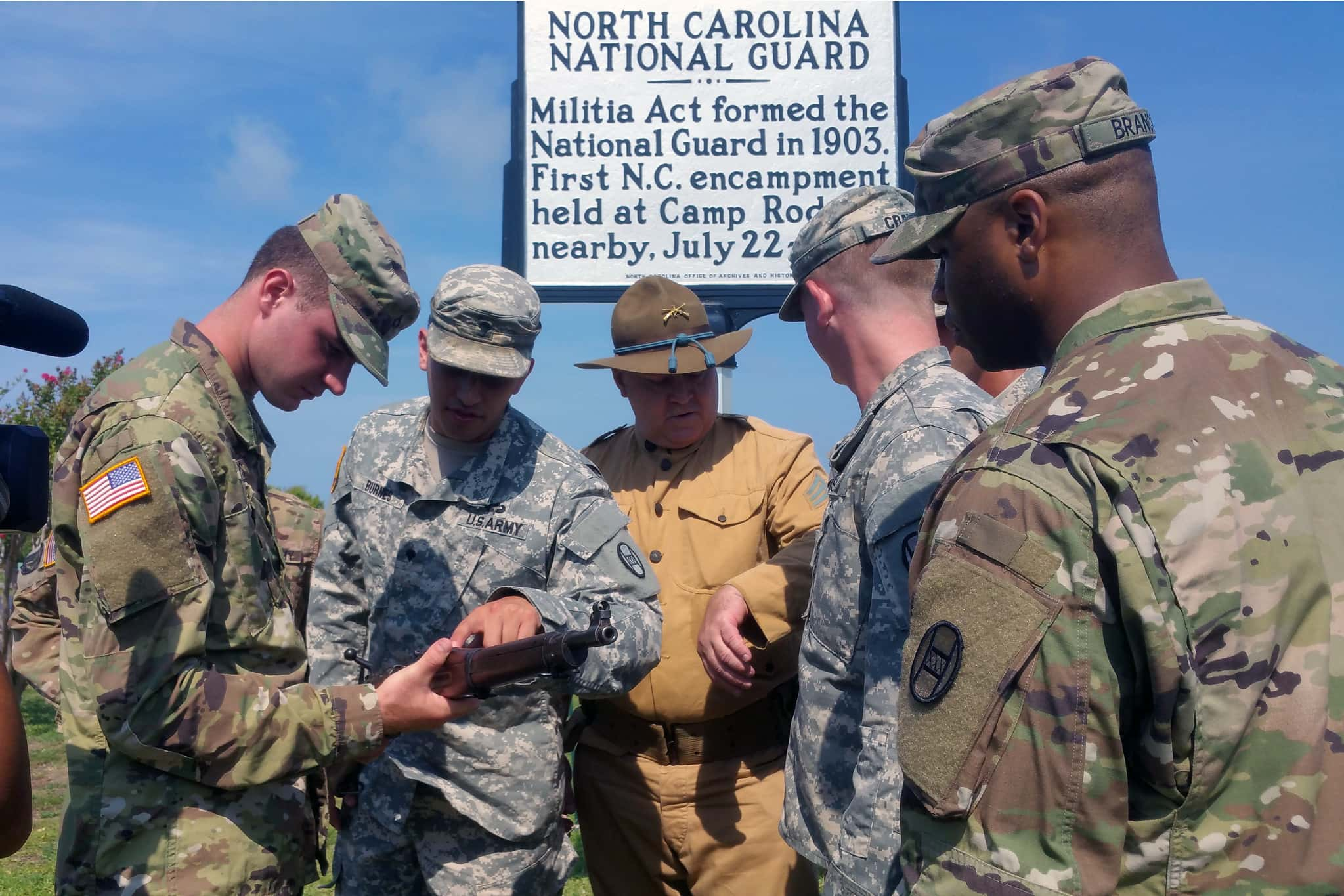 Flickr, North Carolina National Guard
Flickr, North Carolina National Guard
19. Defending The King’s Honor
Protestors greeted Spain’s King Alfonso XII when he visited Paris in 1883. In response, the Spanish city of Lijar raised arms against all of France. There would be no combat, but Lijar maintained their hostilities toward France until 1981. That year, King Juan Carlos enjoyed a much more successful visit, and Lijar rescinded their declaration.
20. Full Of Beans
The Aroostook conflict, fought between the British and Americans over control of Maine, is also called the Pork and Beans War. The name stems from a clerical error that saw huge quantities of the stuff sent to the American forces.
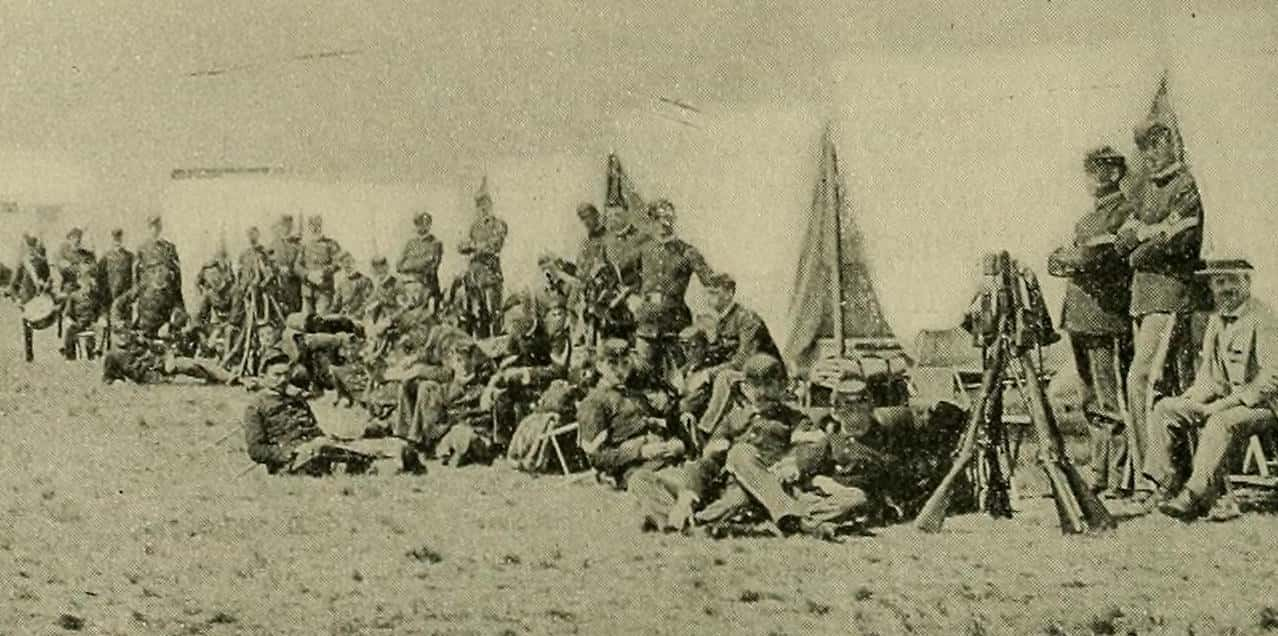 Flickr, Internet Archive Book Images
Flickr, Internet Archive Book Images
21. Birds of Prey
Does this count? In 1932, Australia’s emu population had gotten so out of control that they were destroying a significant portion of Australia’s farmland. To solve the problem, Australia sent an entire heavy artillery battalion to “solve” the problem, if you catch my drift.
22. Animals - 1, Humans - 0
The “Emu War,” as the press called it, resulted in a stunning defeat for the Australians. Their heavy artillery guns proved an ineffective weapon against the elusive emu, and the army was forced to withdraw after a week, having slain only a handful of the stealthy birds. That brings us to a sobering realization: in history’s only interspecies conflict, the humans lost.
23. Pig Out
San Juan Island, in the Pacific Northwest, lay perfectly in the middle of the border between the United States and the British territory that would later become British Columbia. In 1859, the island briefly became a battleground, all because of a hungry pig.
24. That'll Do, Pig
When Lyman Cutlar, an American farmer living on San Juan, found a pig in his potato patch for the second time, he felt well within his rights to fatally shoot the pig. When the owner of the pig, a Hudson’s Bay Company employee named Charles Griffin, demanded compensation, Cutlar refused, leaving Griffin little choice but contact the British authorities and have Cutlar apprehended.
25. The Escalation Begins
Naturally, the Americans weren't thrilled with the idea of British forces landing on disputed territory to arrest an American citizen. They sent their own battalion of 66 men to prevent the British from landing.
26. Overreact Much?
In response, the British sent a whopping 2,000 men and three warships to San Juan. Commander Robert Bayne had been giving direct orders to engage the Americans, but on arrival, he refused. He finally decided that raising arms over a pig was beneath the dignity of the two nations. The two nations reached a truce, and under arbitration, Britain ceded San Juan to the United States. And that's how the infamous Pig conflict came to an end.
27. The Irish Invasion
In the 19th-century, Canada was at odds with Irish America. Following the civil conflict, a group of Irish-born Union veterans attempted to invade Canada through the province of New Brunswick. The Fenians, as they were known, planned to hold Canada ransom in exchange for Ireland’s independence.
28. Luck O’ The Irish
The Battle of Ridgway, between the Canadians and Fenians, was the first industrial-era battle fought by Canadians. It was also the first time entirely Canadian officers led a Canadian force. Their lack of experience helped the Irishmen to their sole victory in the conflict.
29. Losing Record
The Fenians continued to raid sporadically at all points of the US-Canadian border, from New Brunswick to British Columbia. Every attempt failed, turned around at the border either by Canadian militias or American authorities, and they finally gave up in 1890.
30. Did You Hear?
When the British brig Rebecca was found in Spanish-controlled waters, Spanish coast guard Juan de León Fandiño Jenkins came aboard and accused the crew of smuggling. As a penalty, he cut an ear off the Rebecca’s captain, Robert Jenkins. Jenkins later presented his ear to the British Parliament as evidence of the insult. So kicked off the colorfully named “War of Jenkins’ Ear.”
31. Britannia Rules The Waves
James Thompson wrote the legendary “Rule, Britannia!” after the Battle of Porto Bello, a key British victory in the conflict of Jenkins’ Ear.
32. With Cod On Our Side
Iceland may be a small country, but they’ve got guts. Exhibit A: When Iceland tried to protect their fishing grounds from British fishing trawlers, the British responded by sending three battleships into Icelandic waters. Obviously, Iceland couldn't match Britain's firepower, but they responded as best they could, firing rifles at the battleships and ramming them with fishing trawlers.
33. Ultimatums
The “Cod Wars,” as these skirmishes came to be known, went on for more than 20 years. The two nations finally reached a compromise in 1976, but only after Iceland had cut off all diplomatic relations with the U.K. and threatened to leave NATO.
34. Ice Cold
Coincidentally, the Cold War actually helped Iceland in the Cod battles. The Soviet Union, hoping to gain influence in Iceland, began buying fish from Iceland instead of the U.K. The United States, in an effort to neutralize the Soviet Union’s support, began to do the same. Iceland now had the backing of the world’s two biggest superpowers.
35. Saved By The Bell
In 2017, a British fishing trawler and an Icelandic patrol boat exchanged bells as a gesture of goodwill, hopefully putting the Cod battles to an end once and for all.
36. In And Out
Comoros, a nation of islands off the eastern coast of Africa, was already pretty small. It got even smaller after one of the islands, Anjouan, seceded in 1997, in hopes of rejoining France. While Anjouan reintegrated with Comoros in 2002, things remained tense. Then, in 2007, Anjouan once again demanded their independence.
37. Speedboat To Sanctuary
In response, Comoros invaded Anjouan. Within two days (and with some support from the French), Comoros retained control of the rebel island. De facto Anjouan leader Col. Mohamed Bacar escaped the island in a speedboat, but Comoran authorities apprehended him, helped by the fact that France denied his request for asylum.
38. Border Collie
Here’s how tense things were between Greece and Bulgaria in 1925: When a stray Greek dog wandered into Bulgaria, a Greek soldier quickly crossed the border to repatriate the wayward pup. Bulgarian forces shot the soldier the instant he stepped into their country, triggering the War of the Stray Dog.
39. Apology Unaccepted!
Greece issued a series of demands to Bulgaria. They included punishment for the offending party, a formal apology, and 2 million French Francs, ostensibly as compensation to the Greek soldier’s family. Bulgaria apologized and agreed to form a joint commission to investigate, but the Greeks, refusing to negotiate, marched on the Bulgarian city of Petrich.
40. Arbitration
The invasion of Bulgaria lasted five days and led to as many as 171 deaths before the League of Nations stepped in. They ordered Greece to withdraw from Bulgaria immediately and pay the equivalent of $3.4 million in damages. The Greeks grudgingly accepted, but learned a valuable lesson: keep your dogs on a leash.
41. The DIY Defense Squad
When the great state of Missouri redrew their borders in 1839, not only did they take a little extra Iowa, they also decided they should tax the Iowans who lived in this Missouri/Iowa grey area. When those Iowans chased out Missouri’s tax collectors, Missouri sent in their militia. Iowa’s own hastily assembled army met the Missourian militia: a ragtag crew of farmer-pioneers armed with antique rifles, farm equipment, swords, and even a sausage grinder. The sorry-looking squadron still managed to drive the Missourians back to their own side of the fence.
42. Honey, Don’t
The Missouri tax collectors settled for what they could get. They cut down several beehives and seized them as payment, earning this little conflict the name “The Honey War.” It took intervention from the federal government to bring the Honey conflict to a resolution.
Sources: 1, 2, 3, 4, 5, 6, 7, 8, 9, 10, 11, 12, 13, 14, 15, 16, 17

